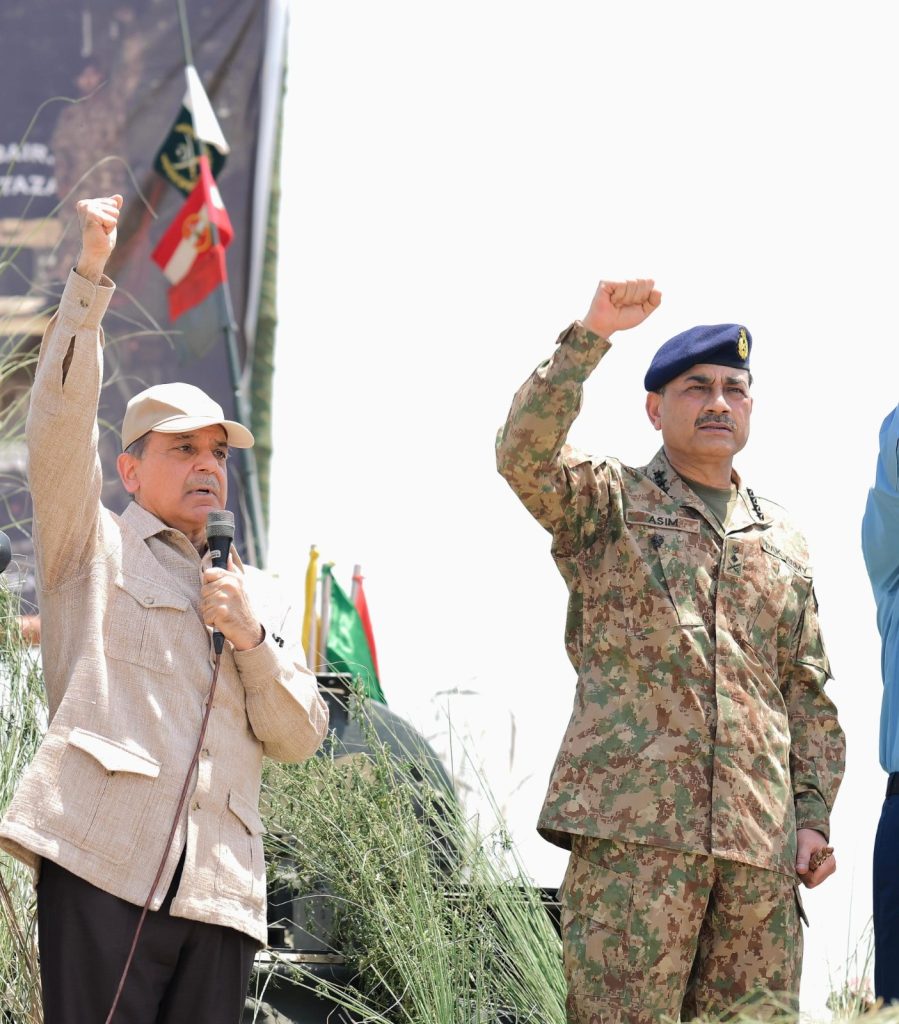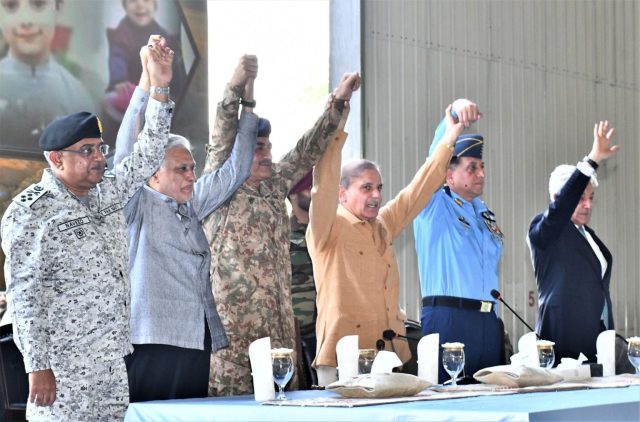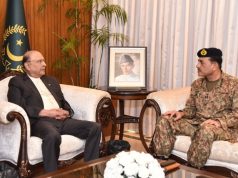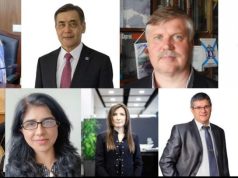KAMRA / PASRUR, Thursday, May 15, 2025 (WNP): Prime Minister Muhammad Shehbaz Sharif on Thursday reiterated Pakistan’s willingness to hold peace talks with India, but stressed that any dialogue must center on the Kashmir dispute and the right to self-determination for the Kashmiri people, in line with UN Security Council resolutions.
Speaking during a visit to the Pakistan Air Force (PAF) base in Kamra, the prime minister made the remarks while addressing airmen and officers who participated in what he called “one of the longest aerial engagements of the 21st century.”
“We desire peace, but not at the cost of our national dignity or regional justice. Talks are possible—but only if India is ready to discuss Kashmir and grant the Kashmiris their UN-mandated right to self-determination,” the prime minister said.
He also denounced India’s baseless accusations against Pakistan over the Pahalgam incident, urging an impartial international investigation. “Instead of seeking truth, India chose aggression. But Pakistan’s armed forces responded with unmatched courage and professionalism,” he said.
Praising the operational excellence of the PAF, Shehbaz Sharif said Pakistani pilots had decisively crushed the illusion of Indian air superiority.
> “The Shaheens of Pakistan Air Force not only defended our skies but rewrote the region’s military history. Their swift and precise action downed six enemy aircraft—including a Rafale and a Mirage 2000—reaffirming our dominance in the air.”
He noted that the conflict, which raged from May 6 to May 10, had shifted regional dynamics. “This was a magnificent victory that stunned the world and altered the strategic balance of South Asia,” he said, adding that the performance of Pakistan’s armed forces boosted international confidence in the country’s military capability.

The prime minister was accompanied by Deputy PM and Foreign Minister Ishaq Dar, Defence Minister Khawaja Asif, COAS General Syed Asim Munir, Air Chief Marshal Zaheer Ahmed Babar Sidhu, Naval Chief Admiral Naveed Ashraf, and several senior military and civilian officials.
Shehbaz Sharif warned India not to misinterpret Pakistan’s restraint as weakness.
> “We exercised restraint not out of fear, but discipline. Our red lines—especially over Kashmir and the Indus Waters Treaty—must not be crossed. If you try to stop our water, remember: water and blood cannot flow together.”
He accused Indian Prime Minister Narendra Modi of destabilizing the region through “Hindutva-driven politics and false flag operations,” including the Samjhauta Express incident and alleged interference in Balochistan. “Modi’s regime lit the spark in East Pakistan; the world knows who trained Mukti Bahini,” he said.
In his impassioned address, PM Sharif commended the professionalism and valor of the PAF, saying their performance would be “remembered in golden words.”
> “The way our air force brought down enemy Rafales will remain etched in history. The JF-17 Thunder’s triumph revived the memories of M.M. Alam, Cecil Chaudhry, and Sarfraz Rafiqui,” he said, referencing legendary PAF heroes.
He hailed the vision of Air Chief Marshal Zaheer Ahmed Babar Sidhu in modernizing the force and integrating advanced technologies. “This victory is not just about the skies—it is about national pride, technological self-reliance, and unmatched professionalism,” he added.
“Ready for Peace — And for War”
Reaffirming Pakistan’s readiness for peace, Shehbaz Sharif emphasized it must be reciprocal and principled.
> “We are ready for peace—and ready for war. The choice is yours. Dialogue cannot be one-sided, and Kashmir is not off the table.”
He thanked the armed forces for their coordination and sacrifices, noting that the people of Pakistan stood united and proud. “The sons of the soil fought gallantly and did not cede a single inch of territory. We will honor their courage for generations,” he said.
Tribute to Armed Forces at Pasrur Cantonment
A day earlier, the prime minister visited Pasrur Cantonment in Sialkot, where he met with troops who took part in Operation Bunyanum Marsoos, part of the larger Marka-e-Haq (Battle of Truth). He praised the mission as a “tale of courage and valour” that would feature prominently in his memoirs.
> “Not only did our troops repel the enemy in an unfavorable situation, they also disproved India’s claims of military superiority,” he said. “Our response was proportionate, timely, and devastatingly effective.”
He concluded with a message to the Indian leadership:
> “Stop misleading your people. Come to the table with sincerity—or face the consequences of arrogance. Pakistan’s sovereignty is not negotiable. Our flag will continue to fly high, until the Day of Judgment.”
The prime minister’s visit served both as a morale booster for the armed forces and a strategic statement to the international community that Pakistan remains resolute, sovereign, and ever vigilant.




